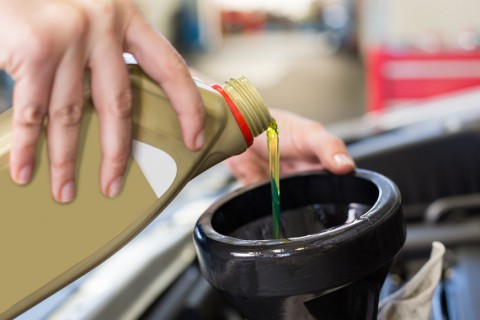Engine oil is the lifeblood of the engine. The oil resides in the oil pan, which is under the car attached to the bottom of the engine. All internal (moving) parts of the engine need to be lubricated by the engine oil. Inadequate lubrication will cause the parts to wear out faster and eventually lead to engine failure. An oil filter keeps the oil clean and free of debris. If the filter is not replaced on a regular basis, it will get clogged and will not be able to pass oil into the engine.
Keep in mind:
• When the oil is changed you should always replace the oil filter.
• Replacement oil should always match the required specifications for your vehicle.
• After your oil has been changed, it’s a good idea to run the vehicle for a few minutes to make sure that there are no leaks.
Our recommendation:
It is best to follow the maintenance schedule provided by the manufacturer (you can check your schedule in your owners manual).
• We recommend replacing the oil and filter every 10 000 kilometers or six months.
• Synthetic oil (versus regular) is cost effective. It’s lubrication properties are better and you will not need oil changes as frequently.
• If you notice any fluids in your driveway, you should get your vehicle inspected immediately.
• Do not drive your car with low engine oil. It can severely damage the engine.
What are the common symptoms indicating you need an oil change?
• The amount of time since your last oil change exceeds the recommended kilometers.
• Maintenance light is on.
How important is this service?
Regular oil changes are generally considered the most important maintenance service for your car. To avoid severe engine damage, this simple and inexpensive service should be regularly scheduled.


